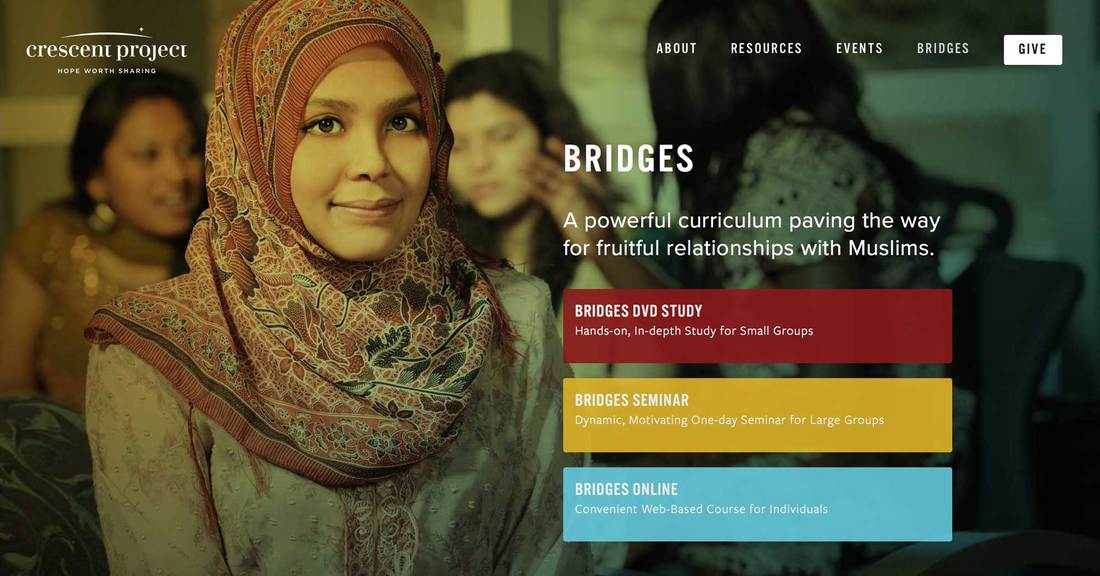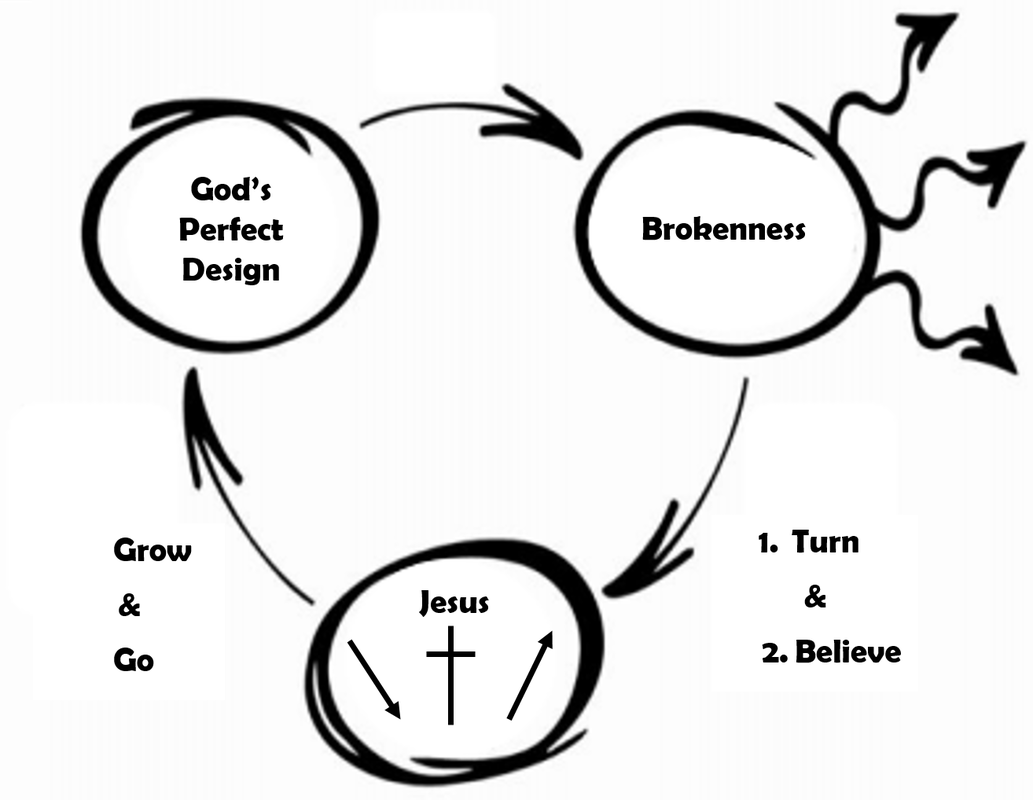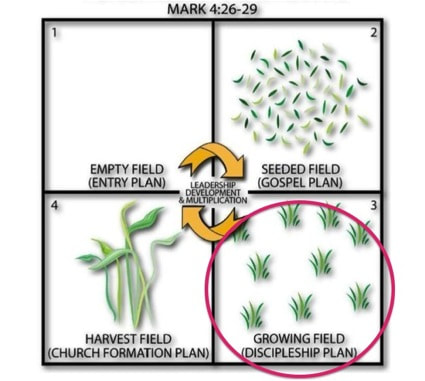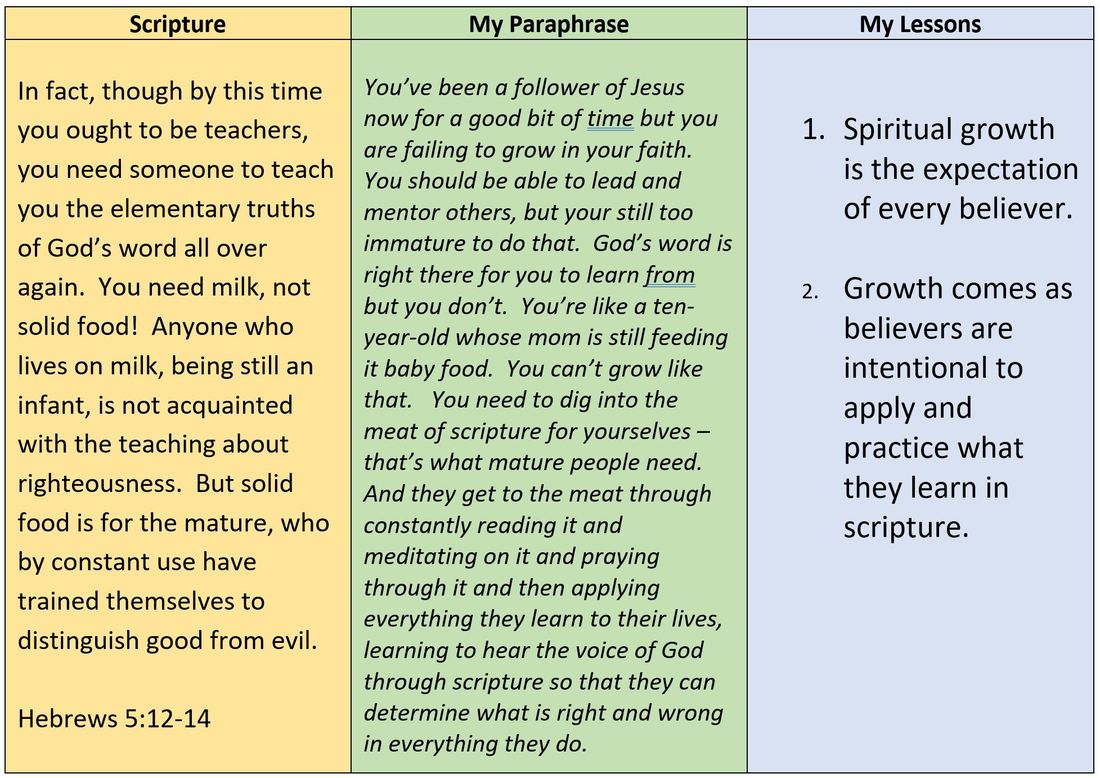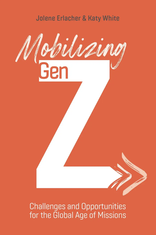|
When my family and I returned from Turkey in 2012, one of the biggest challenges we faced was the level of fear and misunderstanding that we saw in well meaning Christians toward Muslims. We had spent nearly five years building relationships with Muslims who had become our dear friends and it broke our hearts to think that fear, misunderstanding and misinformation were paralyzing the church and preventing them from even saying hello to Muslims here in the U.S. let alone telling them good news about Jesus Christ. In all honesty, my first response was one of bitterness toward the church but God in his grace soon moved me to compassion and understanding. Our friends didn’t share our experience of loving relationships with wonderful Muslim neighbors and friends. It was at about that same time that a friend told me about the Bridges Study. The Bridges Study is a six lesson DVD study that can be used with small groups or Sunday school classes. As I’ve helped groups go through the study, I’ve seen it break down fear and remove misunderstanding as participants grow closer to Jesus as they step out in faith. Crescent Project founder, Fouad Masri, hosts the study which includes great teaching, inspiring testimonies and actionable next steps. I think every church should take their members through the Bridges Study. Here are five reasons why.
The Bridges Study will help you learn about Islam and Muslims through a Biblical/Missional Lens. Everyone is learning something about Islam and about Muslims. The source of that learning is generally the media or media personalities and the motivations behind those talking is often quite different. Some just want everyone to get along. Others want to warn us of hidden plots to take over America. The Bridges Study however presents great information in six thirty minute lessons through a Biblical lens that believes that God wants to see all Muslims repent and believe and follow Jesus. Participants often report that the Bridges Study lowered their fear, increased their understanding and gave them a heart to begin to pray regularly for Muslims to come to faith and look for opportunities to build relationships. The Bridges Study will strengthen the faith of those who go through it. Whenever we step outside of our comfort zones, we have an opportunity to be stretched and see our faith grow. One of the surprising benefits of working to mobilize the church to share the love of Jesus with Muslims was that as people began to explore learning about Islam and about how to share their faith with Muslims, their own faith began to grow. I’ve seen many who have taken the Bridges Study and met a Muslim suddenly reading their Bibles far more regularly because their new Muslim friends ask them questions they’ve never been asked before. Their prayer lives increase. As God begins to use them, their faith grows. The Bridges Study will help those who participate to be Christ’s ambassadors. 2 Corinthians 5:20 says that we are therefore Christ’s ambassadors, as though God were making his appeal through us. One of the cornerstone lessons of the Bridges Study is the four attitudes of an ambassador. It is a lesson that is crucial to understand if we are to share Jesus love with Muslims and as so many participants point out, with anyone. The Bridges Study will invite participants to step out in risk taking obedience to Jesus together with others. After each lesson, there is an action step to take. These are designed to get you out of the living room and into a relationship with a new friend. The goal is to give your new Muslim friend an opportunity to respond to the gospel and be connected with a true follower of Christ. It also gives you and your group an opportunity to step out in risk taking obedience to Jesus together. It gives you the chance to run after the things of God together! There is very little that is more exhilarating than step out in faith with a group of friends for the glory of God! Passive faith becomes active. Shallow fellowship become deep. And God will use your group to share the gospel with Muslims in your community. You’ll be running together! The Bridges Study will help you to be a part of seeing Muslims come to faith in Christ and worship Him. Many of the people I work with struggle to believe that God could use them to introduce a Muslim to a life transforming relationship with Jesus. But as participants begin to step out in faith, God begins to use them, to give them opportunities to share and to love well. Jesus tells us that the harvest is plentiful but the workers are few and then he commands us to pray to the Lord of the harvest to send out more workers into his harvest fields. The fields are his and he wants to use you to see Muslims come to faith in Christ. He has used people just like you all across the world. The Bridges Study was created first and foremost to help mobilize more harvesters into the harvest among Muslims. Start a Bridges Study today and join God in his miraculous movement in the Muslim world. CLICK HERE TO LEARN MORE ABOUT THE BRIDGES STUDY Click here to watch Session 4 to get of feel for the study After participating in an Everywhere to Everywhere (E2E) training weekend, many ask the question, "What next?" The Bridges Study can be a great next step as you return to your home church. Invite others to join you in exploring how God might want to use you - and your church - to reach the Muslim world. CLICK HERE TO LEARN MORE ABOUT E2E
0 Comments
When you read the gospels and the book of Acts, one thing stands out - everyone is talking about Jesus. Boldly. In fact the idea of bold proclimation of the gospel comes up in nearly every chapter of the book of Acts. Regardless of risk or response, it is what those following Jesus did. They seemed to believe that if the sowed the gospel broadly, they would reap an abundant harvest. They seemed to believe that when Jesus said the harvest was plentiful, he was telling the truth. They believed and trusted in the gospel. Sometimes when my pastor shares a story about sharing the gospel with someone he's met on a plane or at a gas station, others will say, "He's so gifted at sharing the gospel." While my pastor is a truly gifted man in a lot of different aspects of life and ministery, I usually take a moment to disagree with that statement. You see it's not so much that he is gifted at sharing the gospel, it's that he is sharing the gospel. He sows abundently and guess what, he reaps more abundantly than most. It is as Jesus and the scriptures say it is. Wayne Gretsky once quipped that he missed 100% of the shots that he never took. And so as followers of Jesus, we need to find ways to share the gospel. We are to be His witnesses (Acts 1:8) and to be His ambassadors (2 Corinthians 5:20) and both of those require us to say something. The outcome is in the hands of the Holy Spirit and not for us to worry about. We just need to share. One tool that I have been taught that I have found to be very helpful is the Three Circles tool for sharing the gospel. I like it for a number of reasons but mostly because it is simple enough for my 12 year old to be able to use. Some might push back saying that it is too simple - fair enough. If you want to add Bible verses or other things, you can certainly do that. But the reality of someone coming to faith is not dependant on a perfect gospel presentation - it's dependant of the Holy Spirit's work in the heart of the one who is lost. Four Spiritual Laws, Roman's Road, The Way of the Master, the Cross Diagram - they all work. Not because they are somehow the perfect presentation of the gospel but because people of faith use them. When we step out in faith to enter into gospel conversations, God shows up. Below are a number of examples of the Three Circles Gospel presentation. Jimmy Scroggins, who developed the Three Circles tool, has a great five video training series which is really helpful. CLICK HERE TO START TRAINING NOW! Three Circles in other languages: (Spanish, Japanese, Russian, Russian, German, Chinese, Nepali, Italian, Turkish, Urdu, Arabic) Do you have a plan to disciple new believers? How about a plan to continue to disciple mature believers?
Do you have a discipleship plan? In the great commission (Matthew 28:18-20), Jesus told us to go and make disciples. It was the last thing he commanded his followers to do. In order to be able to obey Jesus, it would be helpful to have a plan for making disciples. With this short article, I want to introduce some principles for beginning discipleship. But lets start by learning from the word of God. Discovery Bible Study Read Matthew 28:18-20 two times to yourself and then answer these questions.
How did you answer the questions above? Who should make disciples? As I read the passage, it seems pretty clear that everyone who is a disciple should be making disciples. If I am going to teach someone to obey everything that Jesus commanded, then this command is one of those commands. Jesus gives us a command to make disciples. Making disciples is Jesus' plan for kingdom growth. It's that simple. Here are a few ideas to help us begin to make a plan for discipleship that we can use and that we can train everyone to use. Discipleship Lessons Short Term Discipleship - getting started for new believers Long Term Discipleship - keeping moving for maturing believers Short Term Discipleship Short Term Discipleship should lay the foundation on which the new believer will build his or her life in Christ. It's sort of like boot camp for a soldier. They learn the basics but more importantly learn what it means to be a soldier. Here are a few guidelines for thinking about creating or finding a discipleship plan for new believers.
What a disciple does in the first three months of faith, shapes the DNA of the faith they will live out the rest of their lives. If the disciple is asked to passively observe the work of the church, passivity will likely be the DNA. Some examples of Short term discipleship plans can be found below. The main thing is to find or create a simple plan that you can use to help new believers in Jesus to begin a life obeying Jesus and growing in maturity. We have to be intentional to make disciples. We have to train our new disciples how to make disciples. When we do this, by the grace of God and with the help of the Holy Spirit, we begin to see multiplication. Long Term Discipleship A long term discipleship plan must move new disciples from milk to meat, giving them the tools to move into a lifetime of discipleship through dependence on the word of God and the working of the Holy Spirit. We'll talk more about long term discipleship in a future post. Learn it. Apply it. Share it. Today. *The ideas in this article come from pages 59 - 71 in Four Fields of Kingdom Growth. (read it for free here) Short Term Discipleship Plans
The three column Bible study method is something I learned to use from a missionary trainer in 2010. It is a way to interact with the word of God. By prayerfully using this method, we can discover the truths of scripture for ourselves. By teaching our disciples this method - the people we are investing in - we can teach them to feed on the word of God for themselves, helping them to grow into deeper and deeper maturity in the Lord. It doesn’t require a degree in theology, it only requires a desire to grow in the Lord, your Bible, a piece of paper and some time. A few things to consider The three column Bible study methods works better with smaller sections of scripture. You could use it with full chapters, but I generally use it with passages of four to eight verses in length. While you could use this method every day, I generally use it as a few times a month or when I feel the need to really dig into a passage of scripture or a set of scriptures on a particular topic. Finally, remember, this is a tool. Tools have their place, but they are not in and of themselves anything special. It’s just another way to study scripture and to learn to listen to the voice of God. How to do it Divide a sheet of paper into three columns. In the first column copy the passage of scripture that you are studying word for word from your Bible. Take your time doing this, meditating on the words as you write. In the process of copying the passage word for word, you will actually read through it several times. After you have finished copying down the passage, take a few minutes to pray for the Holy Spirit to give you insight into the scripture and to reveal to you the lessons that He would like you to learn from it. In the second column, reread the passage. Think about what it means. Then do your best to paraphrase, or re-write, the passage in your own words. Work through the entire passage re-writing it in your own words in the second column. When you finish, take a few minutes to meditate on the entire passage. Ask the Lord to reveal to you what you need to apply from the passage into your own life.
Finally, take a few moments to pray for help from the Lord to apply what you have learned in your study of the passage this very day. And be sure to share with someone what you learned. Learn it - Apply it - Share it - Today. As we learn from scripture and apply it to our lives and share it with others, we will grow in maturity in the Lord. An Example I've learned a lot about making disciples from Curtis Sergeant. You can read more about Curtis at www.obeygc2.com. Curtis has put together 28 videos that are for those wanting to learn how to make disciples who make disciples who make disciples. They are a great resource and I think you will find these extremely helpful. I would encourage you to take the next 28 days to watch one video each day. Most are between 3 - 7 minutes long. You can watch all of the videos here: Multiplication Concepts And just to get you started, I'll post the first four videos below. There is that in the Gospel which demands expression and is never satisfied without propagating itself. We have seen again and again in the history of the Church that a Christianity which does not propagate itself languishes, if it does not perish. I was recently at a seminar where Randy Friesen shared about the pomogranate. It's a fruit that isn't all that common in North America and yet it has a pecular place in the Bible. It is the fruit that is found adorning the hems of the robes of the priests (Exodus 28; Exodus 39) and is the only fruit decorating the the temple (1 Kings 7; 2 Kings 25; 2 Chronicles 3). Why such a special place for this special fruit? It has to do with God's heart for multiplication. Throughout scripture we see princlples of multiplication and the idea that the glory of the Lord would spread throughout the earth. Genesis chapter one is filled with hints God's heart for multiplication. God's desire is to see his love, grace and salvation multiplied and we see in the methods of Jesus how he intends to do this: through disciples who make disciples who make disciples. And that is the beauty of the pomegranate. It is the only fruit which is 100% seed. In every pomegranate, every bit of nourishement in it's fruit also carries the seed for reproduction. And that is the way it is to be in Christ's church. We have too often fallen into the habbit of depending on the professionals to do the work of entering fields of lostness, sharing the good news of the gospel and discipling new believers. But the expectation of Jesus and the example of the gospels, the book of Acts, the epistles and anywhere in church history where kingdom expansion is taking place is that all who call on the name of Jesus to be saved are also obeying Jesus and making disciples. In Christ, we are made to reproduce. The Church isn't an apple where most of us are fruit and a few of us are made to do the work of making disciples. The church is a pomegranate and each us is compelled to obey Jesus and make disciples. It will look different for everyone, but we all have a part to play. Do you know your part? And do you know how to make disciples? Have you been equipped to enter into gospel conversations, to share your testimony and the a clear proclamation of the gospel and to lead someone to faith? And when they come to faith, are you prepared to train your new believing friend in the foundations of what it means to follow Jesus and make Him Lord of their lives? If not, we'd love to help you learn. |
The E2E Community
Categories
All
Good Books
Archives
April 2024
|
Proudly powered by Weebly

